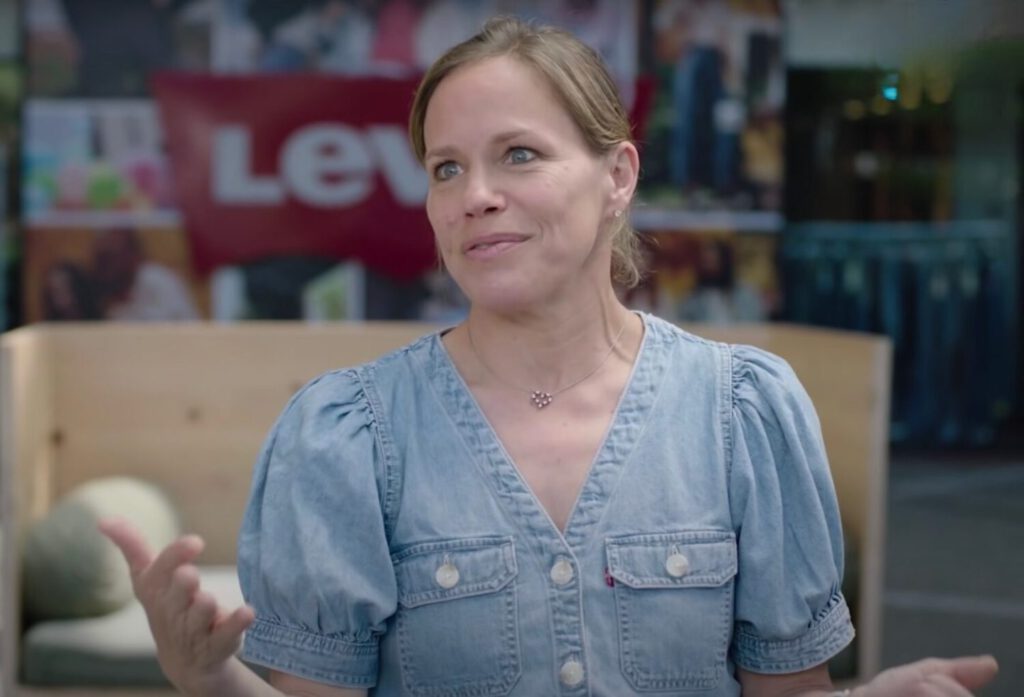Levi’s brand president forced out over questioning school closures
Jennifer Sey, a longtime executive at Levi Strauss & Co., says she has been forced out of the company because of her views on COVID-19 school closures. To continue expressing her views, Sey gave…

Jennifer Sey, a longtime executive at Levi Strauss & Co., says she has been forced out of the company because of her views on COVID-19 school closures. To continue expressing her views, Sey gave up a $1 million dollar severance package.
Sey recently shared her story in Bari Weiss’ substack newsletter, “Common Sense.”
The move began when CEO Charles Bergh informed Sey that it was “untenable” for her to stay at Levi’s after more than two decades with the company.
Sey says she passed up the $1 million severance to avoid a non-disclosure agreement that would have prohibited her from talking about why she had been pushed out. In years past, Sey was able to speak out on a wide range of political issues, and Levi’s supported her.
For example, when the former national champion gymnast spoke out in 2008 against the dark side of gymnastics and treatment of children in the sport, the gymnastics community sought to silence her with threats of violence, legal action and attacks on her reputation. But Levi’s defended her and embraced her as a hero. For her, it was always about protecting children.
But when it came to skepticism about pandemic policies, the company clamped down.
Sey argued that school closures severely affected the age group least affected by COVID, with the brunt of the shutdown harm falling on disadvantaged kids in public schools. She said those students needed the safety and routine of in-person learning the most.
Once it became clear Sey was not going to be silenced, the condemnation began. She was called a racist, eugenicist, and QAnon conspiracy theorist. The racist accusations continued after she criticized San Francisco’s public schools, because “San Francisco’s public school system was filled with black and brown kids, and, apparently, I didn’t care if they died,” Sey wrote, sardonically, also noting that she has two black sons.
She explained how the company piled on the racist accusations: “the Head of Diversity, Equity, and Inclusion at the company asked that I do an ‘apology tour.’ I was told that the main complaint against me was that ‘I was not a friend of the Black community at Levi’s.’ I was told to say that ‘I am an imperfect ally’.”
With the success of the company under current leadership, Sey was likely next in line for CEO, contingent on one specific condition. Bergh explained to her that all she had to do was “stop talking about the school thing.”
“When it was clear public schools were not going to open that fall, I proposed to the company leadership that we weigh in on the topic of school closures in our city, San Francisco. We often take a stand on political issues that impact our employees; we’ve spoken out on gay rights, voting rights, gun safety, and more,” Sey wrote.
The response by the company was drastically different than before, and Sey was informed the company wouldn’t speak out on “hyper-local” issues such as this. The company informed her of the numerous potential negatives if it took a strong stance. Most notable, perhaps, was the inconvenient truth that “numerous” company executives sent their children to private schools.
“The head of HR told me personally that even though I was right about the schools, that it was classist and racist that public schools stayed shut while private schools were open, and that I was probably right about everything else, I still shouldn’t say so. I kept thinking: Why shouldn’t I?”
Sey refused to be canceled and kept speaking against what she called “hypocritical and unproven policies.” She eventually made the decision to move out of California and take her family to Denver, so her kindergartner could “finally experience real school.”
Since her dismissal, Sey says she isn’t considering any legal action against the company, but it is clear she is disheartened by the experience. She feels Levi’s has lost everything it used to stand for. She said of the company, “It’s trapped trying to please the mob – and silencing any dissent within the organization. In this it is like so many other American companies: held hostage by intolerant ideologues who do not believe in genuine inclusion or diversity.”
On top of losing the career she loved so dearly for over 20 years, Sey is disappointed in the political party she’s faithfully supported. “I’ve been a Democrat my entire voting life,” Sey told FOX Business. “I feel the party has abandoned their principles and I find myself quite politically homeless.”



